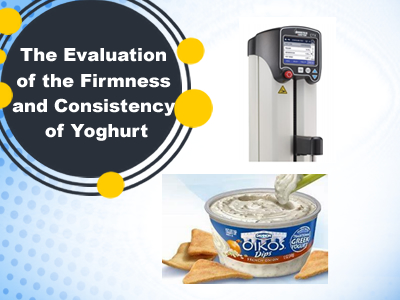By Emma Foster on Wed 26 August 2020
There are different forms of yoghurt available on the market such as stirred, set frozen and liquid yoghurt. Processing variables in the manufacturing of yoghurt controls its textural properties. This article will focus on evaluating the firmness and consistency of the yoghurt using the CTX penetration test.

Evaluation of the Firmness and Consistency of Yoghurt
There are different forms of yoghurt available on the market such as stirred, set frozen and liquid yoghurt. Processing variables in the manufacturing of yoghurt controls its textural properties. Varying the solid content, heat treatment, pH, cultures and incubation temperatures produces a different texture in the yoghurt. Yoghurts are classified as pseudo-plastic materials and depending on its form, the product is either a viscoelastic fluid or a viscoelastic solid.
Using the CTX penetration test with a cylindrical probe, it can determine yoghurt set strength, consistency, flowability and how it will adhere to a spoon. This test is useful for viscous products and the advantage of it is that products can be tested directly from the production line. This article will focus on evaluating the firmness and consistency of the yoghurt using the CTX penetration test. It will go through:
- The Method
- Sample Preparation
- Procedure
- Results
- Observations
1 Your privacy is important to us and we are committed to protecting that privacy. By submitting this form you are consenting to Carl Stuart contacting you about our products and services that are relevant to you. You may unsubscribe from these communications at any time. For more information, check out our Privacy Policy.
